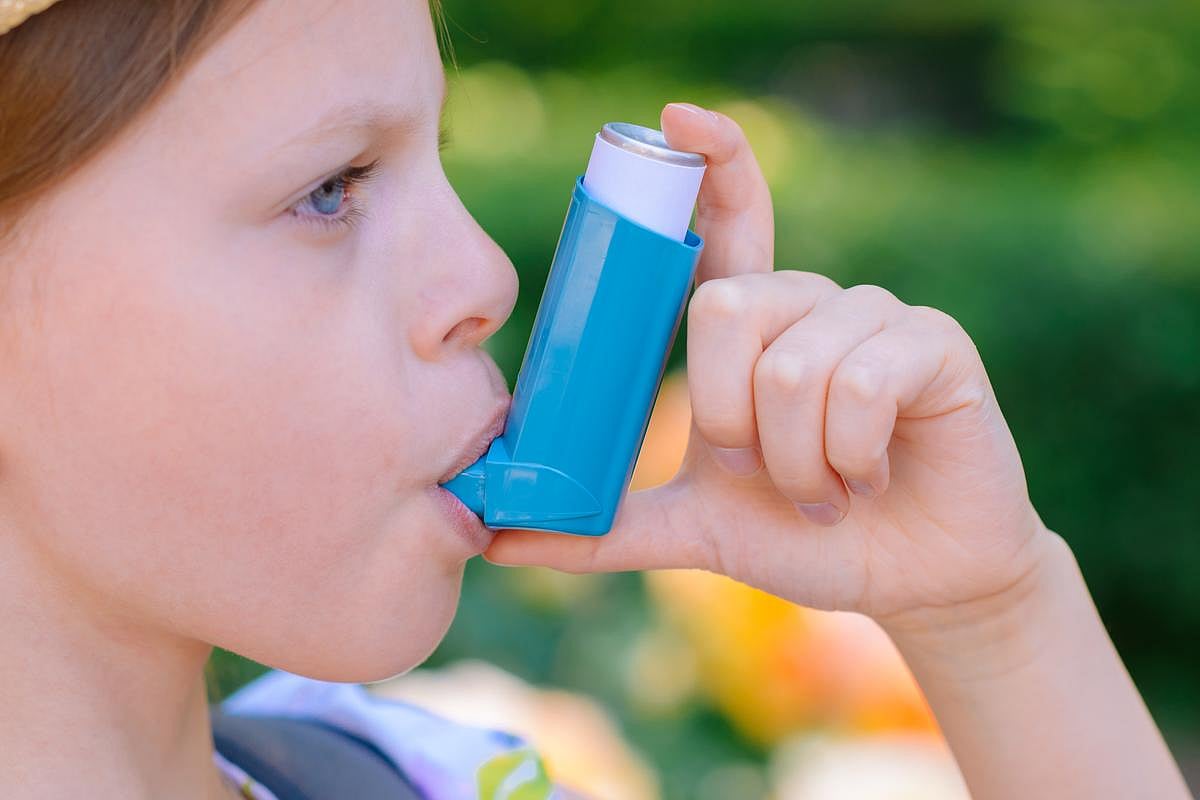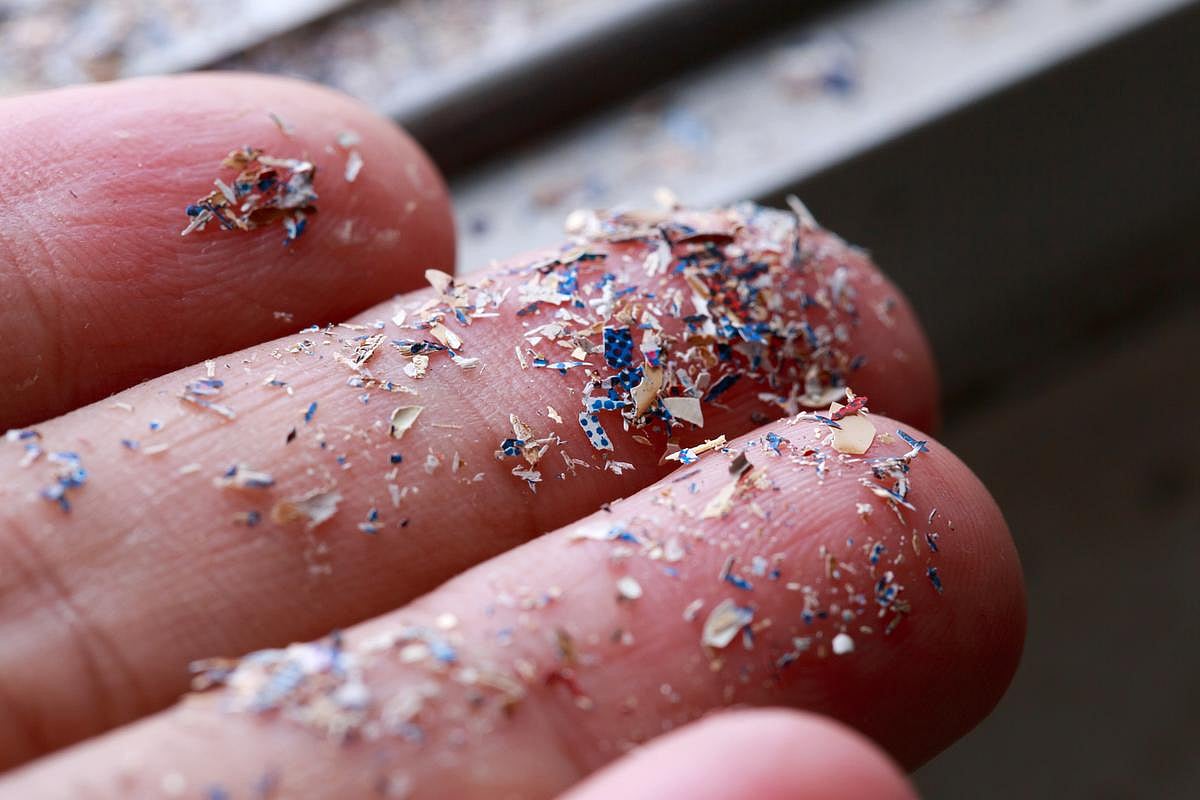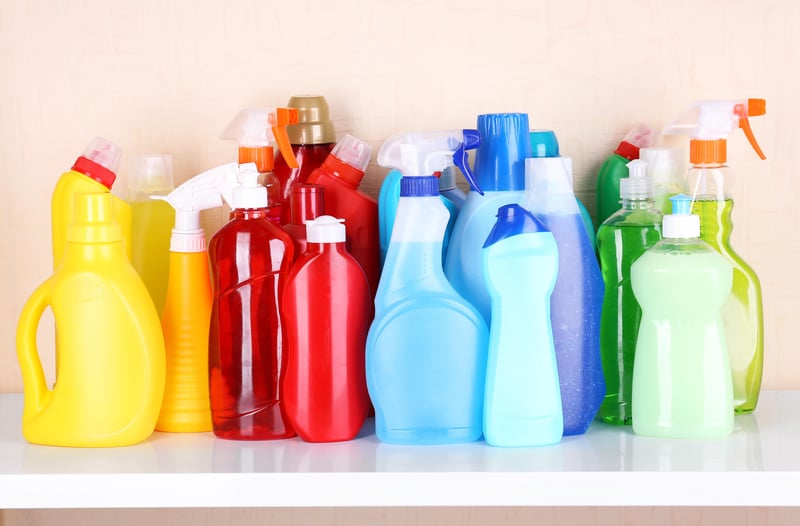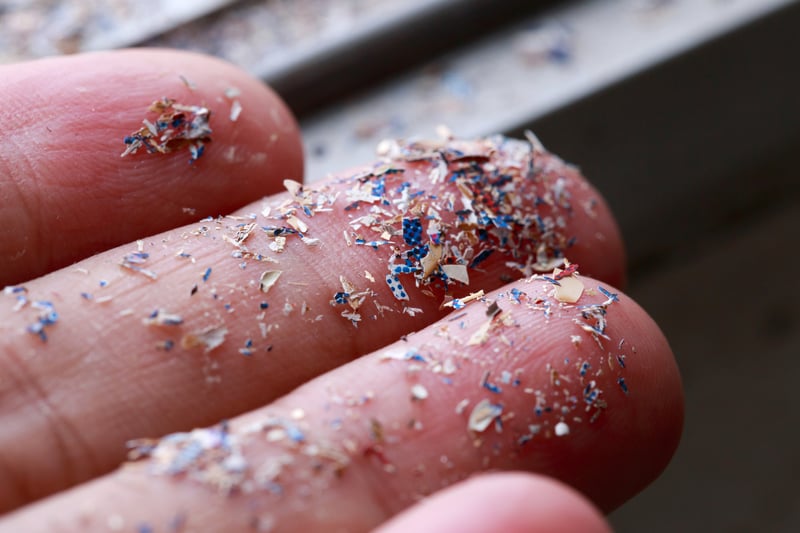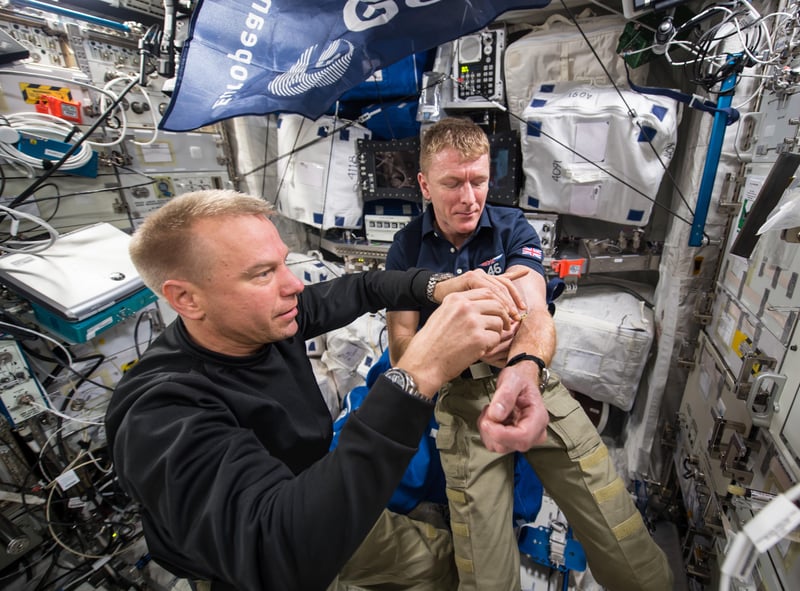Get Healthy!
Results for search "Environmental Medicine".
Health News Results - 76
Soldiers exposed to the Vietnam War-era defoliant Agent Orange have a higher risk of a rare form of bone marrow cancer, a major new study has found.
The study found that people exposed to Agent Orange face a higher risk of developing
After decades of intense focus on genetics, the biomedical research community is undergoing a major shift, focusing on a new framework called "exposomics."
Similar to the way scientists work to map the human genome, this emerging field aims to map the chemical, physical, social and biological elements a person encounters throughout their life.
Experts estimate that genetic mutation...
- Deanna Neff HealthDay Reporter
- |
- November 29, 2025
- |
- Full Page
Even low levels of lead exposure can harm kids' working memory, potentially affecting their education and development, according to a new study.
Exposure to lead in the womb or during early childhood appears to increase kids' risk of memory decay, accelerating the rate at which they forget i...
- HealthDay Reporter
- Dennis Thompson
- |
- July 10, 2025
- |
- Full Page
Dirty, crowded urban environments can significantly increase a person’s risk of developing asthma, a new study says.
Cleaner, better-thought-out cities could ward off 1 of every 10 asthma cases, researchers reported recently in
Microplastics that invade and burrow deep within the human body are becoming an increasing concern among doctors and health experts.
Now, a new study shows that even medical care is causing increased exposure to the tiny plastic particles.
Microplastics can be found in the solutions administered through plastic IV bags, researchers recently reported in the journal
The health benefits of fluoridated drinking water may be waning as Americans increasingly turn to using toothpastes and mouthwashes that already contain fluoride, a new review suggests.
The research, published Thursday in the Cochrane Database of Systematic Reviews, ...
- HealthDay Reporter
- Robin Foster
- |
- October 4, 2024
- |
- Full Page
The wildfires thats are increasing with climate change could harm the future brain health of humanity, a new study suggests.
Wildfire smoke appears to increase people’s risk of a dementia diagnosis even more than other types of air pollution, researchers
- HealthDay Reporter
- Dennis Thompson
- |
- August 1, 2024
- |
- Full Page
After helping America through one of its worst tragedies, some responders to the events of 9/11 may now face another foe: Heightened risks for dementia.
A new study looks at the health of thousands of firemen, construction workers and others who worked at the World Trade Center (WTC) si...
- HealthDay Reporter
- Ernie Mundell
- |
- June 12, 2024
- |
- Full Page
Radon, an invisible, naturally occurring radioactive gas, appears to raise a person's risk of stroke, a new study suggests.
Already known as the second leading cause of lung cancer, these new findings suggest exposure to radon can increase risk of stroke by as much as 14%, according to a report published Jan. 31 in the journal Neurology.
"Our research found an increased ris...
- HealthDay Reporter
- Dennis Thompson
- |
- February 1, 2024
- |
- Full Page
Applesauce fruit puree pouches under recall and investigation for toxic lead levels may also contain another toxin, chromium, according to an update released Friday by the U.S. Food and Drug Administration (FDA).
The products under recall are Wana...
- HealthDay Reporter
- Ernie Mundell
- |
- January 8, 2024
- |
- Full Page
Exposure to a common chemical group found in many household products may delay or even prevent a woman from becoming pregnant, a new study says.
Phthalates can lower a woman's odds of becoming pregnant by up to 18% in any given month, researchers report in the journal Environmental Health Perspectives.
Phthalates ...
- HealthDay Reporter
- Dennis Thompson
- |
- December 20, 2023
- |
- Full Page
"Forever"PFAS chemicals appear to harm bone health in Hispanic teenagers, a new study finds.
The more PFAS chemicals found in the bodies of Hispanic adolescents, the lower their bone density was, researchers report in the Dec. 6 issue of the journal Environmental Research.
Peak bone mineral density in adolescence helps predict whether a person will develop osteoporosis late...
- HealthDay Reporter
- Dennis Thompson
- |
- December 7, 2023
- |
- Full Page
Environmental contaminants may be driving higher rates of breast cancer in urban areas compared to rural locales, a new North Carolina study finds.
"Our analyses indicate significant associations between environmental quality and breast cancer incidence," said lead author Larisa Gearhart-Serna, who led the research as a Ph.D. candi...
- HealthDay Reporter
- Ernie Mundell and Carole Tanzer Miller
- |
- November 22, 2023
- |
- Full Page
Nearly half of Americans have never heard of health-threatening PFAS "forever chemicals,"a new survey has found.
PFAS (perfluoroalkyl and polyfluoroalkyl substances) are a category of thousands of manufactured chemicals that have become an emerging concern to environmental and human health, researchers from Texas A&M University said.
Nonetheless, 45% of survey participants had n...
- HealthDay Reporter
- Dennis Thompson
- |
- November 21, 2023
- |
- Full Page
Cellphone use might be blunting a fellow's chances of becoming a father, a major new study reports.
Young men who frequently use mobile phones have lower sperm concentrations and sperm counts than guys who rarely dial on the go, Swiss researchers found using more than a decade's worth of data.
However, the data also showed that the move to improved cell technologies like 4G could ha...
- HealthDay Reporter
- Dennis Thompson
- |
- November 1, 2023
- |
- Full Page
A variety of risks can make it more likely that someone develops Alzheimer's disease or other dementias.
Now you can add neighborhood environment to that list. A new study finds low income levels and a lack of green spaces are among the factors that can harm brain health.
"Social determinants of health have a major impact on cognition, as well as cardiovascular and cerebrovascular h...
- HealthDay Reporter
- Cara Murez
- |
- October 26, 2023
- |
- Full Page
The U.S. Environmental Protection Agency (EPA) proposes to ban a cancer-causing chemical commonly used as a furniture cleaner and degreaser.
The ban would prohibit most uses of trichloroethylene (TCE) within one year. Limited remaining commercial and industrial uses would be phased out over a longer period and would require stringent worker protections.
"Today, EPA is taking a vital...
- HealthDay Reporter
- Cara Murez
- |
- October 24, 2023
- |
- Full Page
Exposure to ubiquitous chemicals known as PFAS, or per- and polyfluoroalkyl substances, may delay puberty in girls, new research indicates.
The study is the first to consider the role hormones play in the delay, according to researchers from the University of Cincinnati.
Delayed puberty can lead to negative long-term health outcomes for girls, such as a higher incidence of breast ca...
- HealthDay Reporter
- Cara Murez
- |
- October 3, 2023
- |
- Full Page
Highly processed packaged foods and drinks may be quick, cheap and tasty, but new research suggests they're also likely to up your risk for depression.
Among big consumers of ultra-processed foods, depression risk may rise by as much as 50%, the new study found, particularly when those foods are artificially sweetened.
"Given what we know about these foods and the important role of ...
- HealthDay Reporter
- Alan Mozes
- |
- September 20, 2023
- |
- Full Page
That beautiful park you walk through could be hiding dangerous levels of lead. So, too, could the soil under the play equipment where your children slide and swing.
New research in the United States finds that urban parks built on sites where waste was incinerated could be hotspots for lead.
"We found that city parks and playgrounds built on the site of a former waste incinera...
- HealthDay Reporter
- Cara Murez
- |
- September 15, 2023
- |
- Full Page
Everyday products used for cleaning or freshening the air may release hundreds of hazardous volatile organic compounds, according to new research.
Both conventional and "green" products emitted these VOCs in an analysis by the Environmental Working Group, though the green cleaners had less of them.
"This study is a wake-up call for consumers, researchers and regulators to be more aw...
- HealthDay Reporter
- Cara Murez
- |
- September 14, 2023
- |
- Full Page
Hurricane Idalia is expected to make landfall in the United States Wednesday.
Idalia was forecast to be a powerful Category 3 storm by the time it reaches Florida's Big Bend, an area prone to storm surge that stretches from Tampa to just south of Tallahassee. It's also expected to hit eastern parts of Georgia and the Carolinas before heading out to sea late Thursday or early Friday.
- HealthDay Reporter
- Cara Murez
- |
- August 30, 2023
- |
- Full Page
Paper straws, meant to be an eco-friendly alternative to plastic, may not be better for the environment, a new study concludes, warning that they also contain "forever chemicals"that can harm human health.
"Straws made from plant-based materials, such as paper and bamboo, are often advertised as being more sustainable and eco-friendly than those made from plastic,"said researcher
- HealthDay Reporter
- Cara Murez
- |
- August 25, 2023
- |
- Full Page
With 2023 predicted to be the hottest year on record, a new study is pointing to another potential consequence of heat waves: faster declines in older adults' memory and thinking skills.
The study, of nearly 9,500 older U.S. adults, found that those with greater exposure to heat waves over 12 year...
- HealthDay Reporter
- Amy Norton
- |
- August 24, 2023
- |
- Full Page
Research into a possible link between childhood health problems and natural gas wells in western Pennsylvania is wrapping up with some answers.
Children who lived near these wells were more likely to develop rare lymphoma, the research found.
In addition, residents of all ages near the wells had increased risk of severe asthma reactions, the Associated Press reported.
- HealthDay Reporter
- Cara Murez
- |
- August 16, 2023
- |
- Full Page
Some menstrual products -- pads, tampons, cups and underwear -- contain harmful "forever chemicals,"according to new research into the contents of these essential items.
Researchers analyzed more than 100 period products looking for fluorinated compounds, an indicator of potentially harmful per- and polyfluoroalkyl substances, or PFAS. The products typically don't list ingredients on thei...
- HealthDay Reporter
- Cara Murez
- |
- August 14, 2023
- |
- Full Page
If you're moving into a home where smokers lived, the first thing you should do to protect your lungs is rip out any old carpeting, new research suggests.
Scientists found that tobacco smoke clings to carpet fibers long after smoking has stopped, and ozone generators that purify the air and surfaces can't remove it completely.
This leftover residue, also known as "thirdhand smoke,"...
- HealthDay Reporter
- Cara Murez
- |
- August 14, 2023
- |
- Full Page
Microplastics appear to be everywhere, including within the tissues of the human heart.
A new Chinese report describes doctors finding microplastics in heart tissue both before and after heart surgery. The researchers also noted there is evidence suggesting that microplastics may have been unexpectedly introduced during the heart procedures.
The researchers, who included
Astronauts aboard the International Space Station (ISS) are living in an environment that contains higher levels of potentially harmful chemicals than seen in American homes, new research reveals.
The discovery is important because it could guide the design of future spacecraft.
"Our findings have implications for future space stations and habitats, where it may be possible to exclu...
- HealthDay Reporter
- Cara Murez
- |
- August 9, 2023
- |
- Full Page
Being exposed to lead while in the womb or during early childhood may increase a person's chance of engaging in criminal behavior as an adult, a new review claims.
To arrive at this conclusion, the review authors evaluated 17 previous studies that used varying methods to test for lead exposure, including blood, bones and teeth. They also addressed the effects of exposure at different ages...
- HealthDay Reporter
- Cara Murez
- |
- August 2, 2023
- |
- Full Page
U.S. federal officials took a big step toward protecting children from a contaminant blamed for irreversible health effects, proposing tougher standards for removing lead-based paint in pre-1978 buildings and child care facilities.
The U.S. Environmental Protection Agency
New research on horses and dogs found elevated levels of PFAS "forever chemicals,"establishing horses as sentinel species.
Sentinel species provide advance warning of a danger to people.
The work also advanced knowledge about PFAS exposure and liver and kidney function in these animals. PFAS stands for per-and polyfluoroalkyl substances, a group of chemicals used in plastics and gre...
- HealthDay Reporter
- Cara Murez
- |
- June 21, 2023
- |
- Full Page
Using gas stoves can increase indoor air levels of benzene, a chemical linked to higher risk of leukemia and other blood cell cancers, a new study reports.
Analysis of dozens of stoves revealed that a single gas cooktop burner on high or a gas oven set to 350 degrees Fahrenheit can raise indoor levels of benzene above those typically released by secondhand tobacco smoke, the researchers r...
- HealthDay Reporter
- Dennis Thompson
- |
- June 16, 2023
- |
- Full Page
Humans are inhaling microplastics from the degradation of plastic products in the environment, and these tiny plastic particles are sticking in human airways, according to researchers.
People inhale about 16.2 bits of these microplastics every hour --- the equivalent of a whole credit card each week --- according to a study published June 13 in Physics of Fluids. These micr...
- HealthDay Reporter
- Cara Murez
- |
- June 13, 2023
- |
- Full Page
Microplastic pollution is altering the gut microbiomes of wild seabirds and that could be a warning sign for humans, researchers report.
Scientists from McGill University in Montreal, along with colleagues from around the world, found that tiny bits of plastic present in the gastrointestinal system of seabirds have modified the gut's microbiome. The plastics are also reducing levels of ad...
- HealthDay Reporter
- Cara Murez
- |
- May 30, 2023
- |
- Full Page
A chemical used to degrease industrial parts that was also used as a surgical anesthetic until the 1970s may increase the risk for Parkinson's disease, researchers report.
Their new study found that two years of heavy exposure to the liquid chemical TCE may boost Parkinson's risk by 70%.
TCE, or trichloroethylene, lingers in the air, water and soil. It has been linked to certain can...
- HealthDay Reporter
- Cara Murez
- |
- May 17, 2023
- |
- Full Page
Black and Hispanic communities in the United States are more often poor -- and also more likely to have harmful levels of per- and polyfluoroalkyl substances (PFAS) in their drinking water, a new study reveals.
Sources of PFAS pollution -- including major manufacturers, airports, military bases, wastewater treatment plants and landfills -- are disproportionately sited near watersheds that...
- HealthDay Reporter
- Cara Murez
- |
- May 16, 2023
- |
- Full Page
Pollutants produced by the U.S. oil and gas industry cause thousands of deaths and cost the country tens of billions in health care expenses, a new study reports.
Nitrogen dioxide (NO2), fine particulate matter and ozone all contribute to air pollution, and all are emitted as part of oil and gas production, the researchers said.
The new study estimates that the oil and gas industry ...
- HealthDay Reporter
- Dennis Thompson
- |
- May 8, 2023
- |
- Full Page
Many common household products emit airborne toxins that can harm your health in ways up to and including cancer, a new study reports.
Dozens of different types of consumer products contain toxic volatile organic compounds (VOCs), chemicals that escape as gases and accumulate in indoor air, researchers from the Silent Spring Institute and the University of California, Berkeley (UC Berkele...
- HealthDay Reporter
- Dennis Thompson
- |
- May 2, 2023
- |
- Full Page
U.S. water utilities will be required to remove certain "forever chemicals"from drinking water as the Biden administration sets first-ever limits on perfluoroalkyl and polyfluoroalkyl compounds, better known as known as PFAS.
Nearly all Americans have PFAS in their bloodstream. The toxic chemicals are found in an enormous range of goods from dental floss to waterproof clothing. The chemic...
- HealthDay Reporter
- Cara Murez
- |
- March 14, 2023
- |
- Full Page
Canned tuna is known to contain low levels of mercury, but a new Consumer Reports investigation has found spikes of the neurotoxin in some cans.
The organization tested five popular tuna brands, CBS News reported.
While the mercury levels were all within U.S. Food and Drug Administration standards, Consumer Reports urged pregnant women to "avoid canned tuna altogether."
...- HealthDay Reporter
- Cara Murez
- |
- February 10, 2023
- |
- Full Page
Chemicals found in plastic personal care products, kids' toys, and food and drink packaging could be raising the risk of type 2 diabetes among women, new research suggests.
To study the impact of these chemicals, known as phthalates, researchers followed just over 1,300 U.S. women for six years to see if exposure contributed to the incidence of diabetes.
About 5% of the women devel...
- HealthDay Reporter
- Cara Murez
- |
- February 9, 2023
- |
- Full Page
Parents in the United States may assume baby food is free of impurities, but a recent research review highlights the much different reality: Most foods made for babies and toddlers have some amount of toxic heavy metals.
The contaminants include metals, such as lead and arsenic, that can harm brain development, and contribute to learning and behavior problems in children. And they are fou...
- HealthDay Reporter
- Amy Norton
- |
- February 8, 2023
- |
- Full Page
Black and Hispanic women who work as hairdressers are exposed to an array of chemicals, including many that have not been previously identified, a small study finds.
Researchers found that compared with women of color in office jobs, hair stylists had higher levels of various chemicals in their urine. Those substances included expected ones -- ingredients known to be in salon products -- ...
- HealthDay Reporter
- Amy Norton
- |
- January 31, 2023
- |
- Full Page
Natural gas stoves have become the latest flashpoint in America's increasingly volatile political culture, after a top federal regulator publicly mulled over banning the appliances.
"This is a hidden hazard," the U.S. Consumer Product Safety Commission (CPSC) commissioner, Richa...
- HealthDay Reporter
- Dennis Thompson
- |
- January 27, 2023
- |
- Full Page
Being evicted can have a significant impact on a person's health, according to new research.
In U.S. counties where eviction rates were elevated, death rates were higher for all causes, especially if those areas were home to a higher proportion of Black residents and women.
- HealthDay Reporter
- Cara Murez
- |
- December 29, 2022
- |
- Full Page
U.S. communities with higher Hispanic, American Indian or Black populations also have the highest concentrations of metal in public water systems, new research reveals.
Researchers from Columbia University Mailman School of Public Health in New York City found significantly higher arsenic and uranium levels in public drinking water in Hispanic and American Indian/Alaska Native communities...
- HealthDay Reporter
- Cara Murez
- |
- December 28, 2022
- |
- Full Page
Diets higher in fruit, vegetables and omega-3 fatty acids could improve astronaut health during long spaceflights while still sticking to requirements for what can go on board, according to new research.
A new study tested this theory on a spaceflight simulation chamber on Earth with 16 people: 10 men and six women.
Four individuals participated in each 45-day, Earth-based, closed-...
- HealthDay Reporter
- Cara Murez
- |
- December 26, 2022
- |
- Full Page
Uterine fibroids can cause uncontrolled bleeding and infertility in women, and now a new study finds an unexpected culprit: Toxic chemicals called phthalates that are present in everything from fast-food packaging to plastic water bottles.
"We detected the phthalate DEHP and its breakdown products in much higher quantities in the urine of women who also happen to have symptomatic uterine ...
- HealthDay Reporter
- Cara Murez
- |
- November 15, 2022
- |
- Full Page
Lead is known to damage young children's brains, and a new study suggests the effects may still be apparent in old age.
Researchers found that among nearly 1,100 older U.S. adults, those who grew up in cities with lead-contaminated drinking water generally scored worse on tests of memory and thinking skills.
The findings, experts said, suggest that older adults who were exposed to l...
- HealthDay Reporter
- Amy Norton
- |
- November 10, 2022
- |
- Full Page



